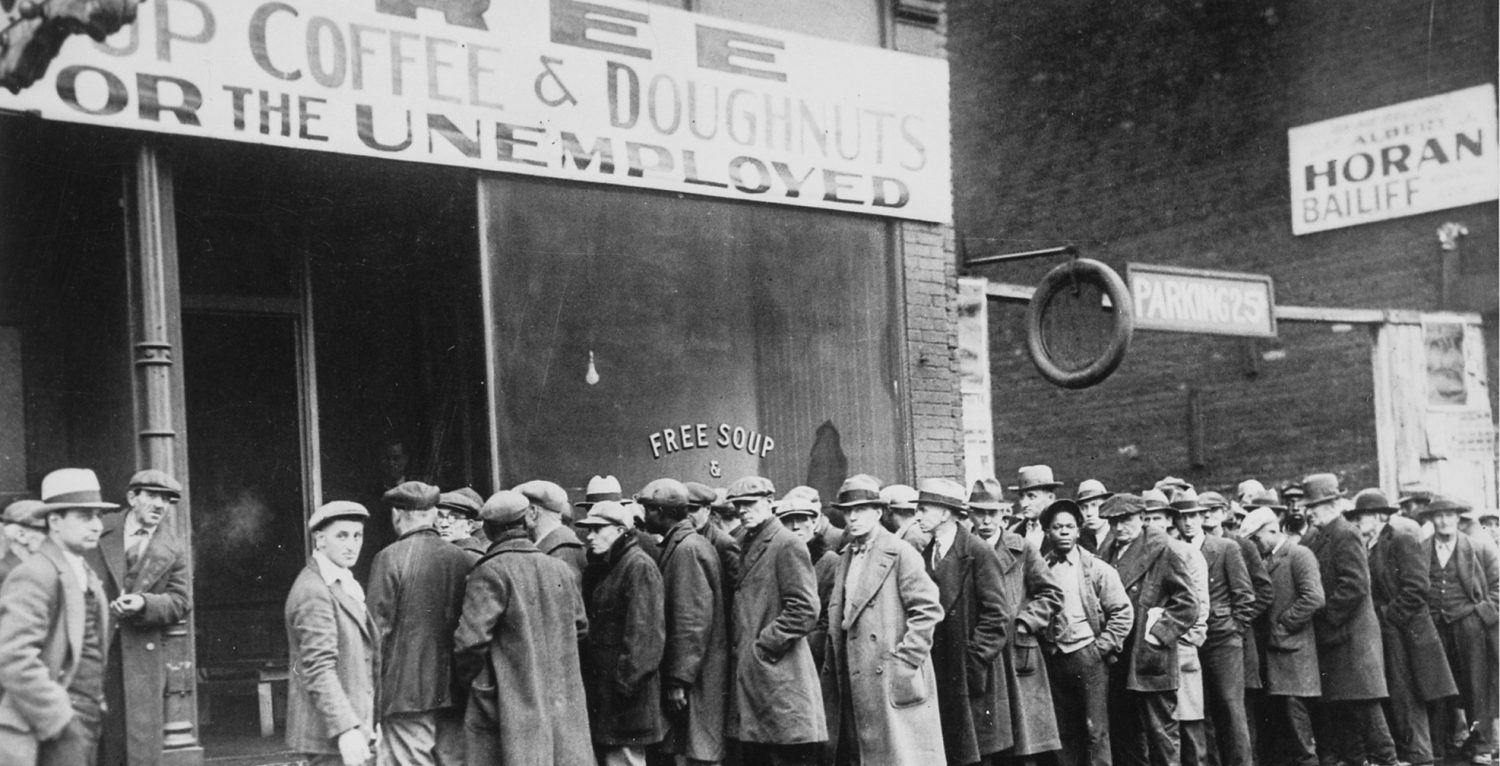A new form of capitalism
Our current economic system is in crisis and it is time for fundamental reform, writes Michael Jacobs
Who’d have predicted that the big debate kicked off by this year’s party conferences would be about capitalism and socialism?
Admittedly, it hasn’t been particularly enlightening. At the Conservative party conference and in the right-wing newspapers, the embattled defence of ‘free markets’ and attack on Jeremy Corbyn’s alleged Venezuelan tendencies tickled all the right ideological places but added little understanding. It doesn’t take an economic genius to point out that there are no such things as ‘free’ markets – and they’re definitely not what a Conservative government with an industrial strategy, an energy price cap and a rising minimum wage is currently proposing.
But equally, around the Labour conference (among both supporters and opponents) there was plenty of starry-eyed fiction about Labour’s ‘anti-capitalist’ programme under the new Corbyn- McDonnell regime. Sorry to disappoint, but even after the entire Labour manifesto has been implemented, we will still have a capitalist system.
But it would take a different form, and that’s the interesting debate we need to have. For if Theresa May is to be believed – and rather surprisingly her economic speeches deserve to be read – she too wants to change them nature of British capitalism. Like Corbyn and McDonnell she declares that our economy isn’t ‘working for everyone’ and believes it needs serious reform. The promotion of a much more interventionist industrial strategy is intended to be her principal instrument.
Now you may or may not believe that a Conservative government will seriously attempt to reform the British model of capitalism. But the very fact that the prime minister is talking about trying to do so is indicative of a much larger transformation now under way. We may be on the cusp of an epochal shift in economic thinking and policy.
Consider first the evidence that our current form of capitalism is in crisis. After a financial crash which exposed systemic risk and instability in our banking system, we have had the slowest recovery on record. Despite eight years of near-zero interest rates and unprecedented injections of money in the form of ‘quantitative easing’, our economy still can’t generate sustained or stable growth. It is rising consumer debt which is once again fuelling such growth as we have. Both investment and productivity have been flatlining since the financial crisis and both are much lower than in our major competitors.Employment is high but earnings have been stagnant for more than a decade, and many jobs are low-waged and insecure. We have the most geographically unbalanced economy in Europe. We produce way too much carbon.
These problems are set out in detail in the interim report of the IPPR Commission on Economic Justice, Time for Change: A New Vision for the British Economy, which was published in September. The commission notes that some of these problems are also evident in other developed economies. Major companies all over the world are saving money rather than investing it; many economies are experiencing weak or non-existent earnings growth; few are growing sustainably with positive interest rates. But too many of the UK’s structural problems are peculiar to this country.
Indeed, the striking observation if one looks at advanced economies around the world is just how different they are. From the egalitarian, high public spending model of the Scandinavian countries to the low-tax model of the US and Australia; from the famous ‘Mittelstand’ of small and medium sized family firms which form the backbone of German manufacturing to the close relationships of major companies and the state in Japan; from the tightly controlled labour market of France to the barely regulated labour market of the UK – capitalism comes in many different varieties. Some are more successful by some measures; others under other criteria. But there is nothing inevitable about the kind of economy we have now in the UK. It is the result of choices which successive governments – both Conservative and Labour – have made over the last 30 years or so. There are plenty of alternative forms of capitalism on which we could draw to address the profound weaknesses of our current model.
Fundamental reform of the UK economy – and of the economic analysis which accompanies it – has indeed happened before. In the 1930s and 40s, the crisis of the Wall Street Crash and the Great Depression led to the replacement of the previously dominant orthodoxy of laissez faire. Keynesianism provided a new basis for economic policy; the welfare state put it into practice. This post-war consensus lasted for 30 years until it too ran into crisis. Following the oil shocks and ‘stagflation’ of the 1970s, a new orthodoxy took root – that of free market or neoliberal economics and its associated policy menu of deregulation, privatisation and labour market flexibility.
Following the financial crash of 2008, and the failures of austerity since, there is a strong case that we need a comparable shift in economic thinking and policy today. In both those previous periods it is notable that there was widespread agreement across the political spectrum that change was needed. That is why the similar agreement we see today is so significant.
And it is of course no coincidence that much of the public appear to be ahead of the politicians in grasping that something needs to change. The Brexit vote suggested that many voters believe that the economy is no longer working for them. Labour’s unexpectedly strong showing in the general election showed how widespread is the appetite for more radical approach.
So what would a ‘re-formed’ capitalism look like?
First, it would be governed by a much clearer social and political vision of what the economy is for. GDP growth is now a very poor measure of prosperity. It is no longer associated with rising earnings; it fails to take unpaid work or environmental damage into account; it does not measure inequality. So we need better measures of our individual and social wellbeing. In a re-formed economy we would be valuing social goods – education, health, social care, culture, vibrant cities and beautiful landscapes – as much as goods for individual consumption. We would be concerned about people’s mental health at work as well as their productivity; about achieving better work-life balance as well as ending gender and racial discrimination. The distribution of income and wealth would be as central to society’s notion of prosperity as their production. And we would need to ensure that the environmental foundations of the economy – at a global scale – were sustainably husbanded. Only a wide public debate about these objectives can ensure they become the foundation of a new economy.
Second, there would be a different view of business. Too often those who seek the reform of capitalism are described as (and sometimes sounds as if they are) ‘anti-business’.But this is absurd. Private businesses employ more than half the workforce and generate more than half of national income. So to be ‘anti-business’ is to be ‘anti-economy’. The issue is what kind of businesses we wish to incentivise. And the answer is that more of them should be like the best already are. Britain’s most successful companies – and there are plenty of them, from Siemens to John Lewis, Unilever to Nationwide – invest for the long term. They focus on innovation, not extracting value. They try to create good jobs, with good pay, training and career progression, engaging their workers to help increase both voice and productivity. They seek to reduce their environmental footprint. And they pay their taxes. A combination of competition and tax policy, corporate governance reform and industrial strategy would ensure that in a new economy we have more of such firms and fewer which bring business into disrepute.
Third, financial markets would be designed to serve the rest of the economy rather than simply their own profitability. Today too much of the financial sector is focused on short-term returns at the expense of long-term investment. We need less trading and more investment. A range of reforms – from executive pay to the fiduciary duty of pension and investment funds; from taxation to the establishment of new public investment banks – are likely to be required.
Fourth, a re-formed capitalism would distribute income and wealth more justly. This would happen not just by redistribution through the tax and benefit system, though this will always be important. It will happen in the way labour markets and firm ownership are structured. A progressively higher minimum wage would be augmented by stronger collective bargaining by trade unions to raise wages and ensure more of national income goes to labour. Firms would be owned more by their workers, through employee trusts and in various kinds of cooperative and social enterprise models. A sovereign wealth fund might give the whole population a stake in the ownership of capital.
Fifth, governments would have a stronger role in steering the economy. Fiscal as well as monetary policy would be used (unlike now) to sustain demand and employment and manage inflation. When the private sector won’t invest, governments need to. Industrial strategy – as now recognised by both government and opposition – can both help raise the rate of investment and direct it into the areas society needs. Today we badly need more investment in infrastructure, in innovation, in automation and digitalisation, in decarbonising the economy and in meeting the challenge of an ageing society. And we need more of it in the nations and regions of the country outside London and the south-east. Government spending not only provides vital foundations for growth – in infrastructure, public services and social welfare. It socialises risk for the private sector and create expectations on which investment plans can be based. Only government (at national and subnational levels) can provide the strategic coordination a modern economy needs
Is such a form of capitalism possible? There’s no doubt a lot of work still needs to be done to flesh out the policies and institutional reforms needed to bring it into being. But it is political will, not any kind of economic inevitability, that determines the kind of economy we have. We should be under no illusions that many vested interests will seek to obstruct the realisation of a new vision. But the interesting thing today is just how widespread is the understanding that change is needed.

